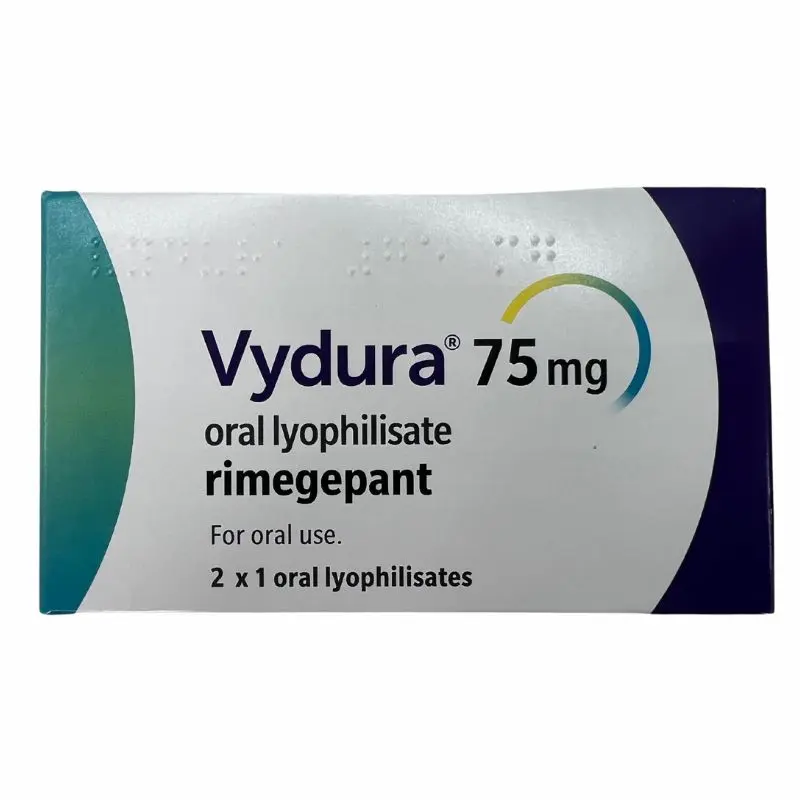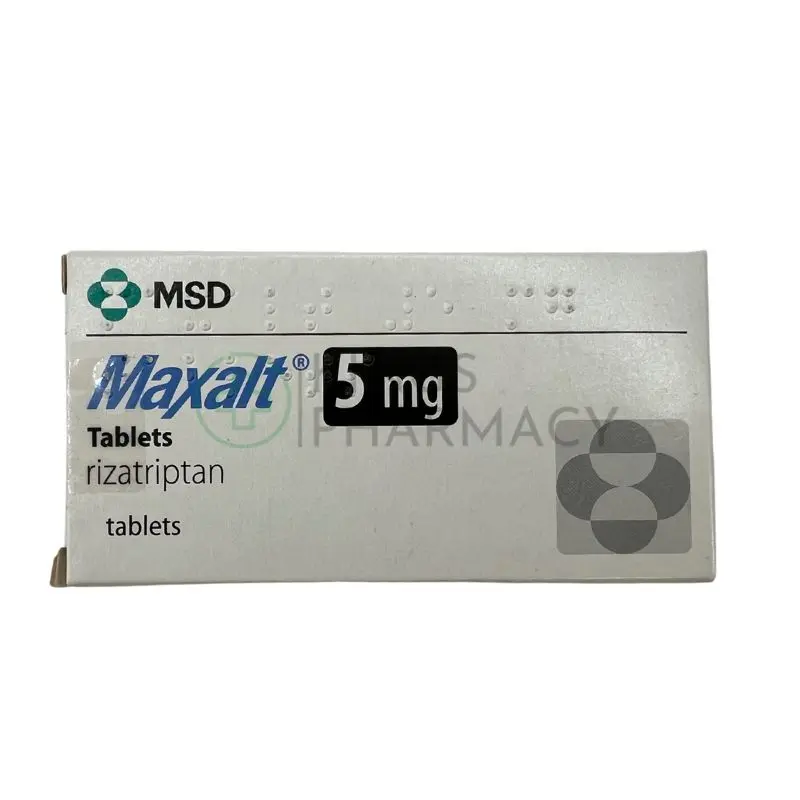Vydura
Vydura (generic name: rimegepant) is a medication primarily used for the acute treatment of migraine attacks with or without aura and for the preventive treatment of episodic migraines. It belongs to a class of drugs called CGRP receptor antagonists (calcitonin gene-related peptide antagonists). Vydura works by blocking the activity of CGRP, a molecule involved in the development of migraine symptoms. This medication is available in an orally disintegrating tablet form, making it convenient for quick use during migraine episodes. Common side effects may include nausea and hypersensitivity reactions, but it is generally well-tolerated. Always consult a healthcare provider for personalized advice.
Select Strength
Vydura is an innovative medication designed to address the needs of individuals suffering from migraines, offering both acute symptom relief and preventive benefits. Its active ingredient, rimegepant, is a calcitonin gene-related peptide (CGRP) receptor antagonist, a novel class of drugs specifically targeting migraine pathways.
Key Benefits of Vydura
- Fast-acting relief: Vydura quickly alleviates migraine symptoms, including headache pain, nausea, and sensitivity to light or sound, with effects often noticeable within two hours.
- Convenient administration: The orally disintegrating tablet dissolves effortlessly on the tongue, making it suitable for those who struggle with swallowing or need on-the-go relief.
- Dual-purpose use: Unlike many migraine medications, Vydura is approved for both acute treatment and prevention of episodic migraines, offering flexibility in managing the condition.
How Vydura Stands Out
Vydura represents a significant advancement over traditional migraine treatments such as triptans, which may not be suitable for all patients, particularly those with cardiovascular conditions. By targeting CGRP receptors, Vydura provides an alternative mechanism of action that is both effective and well-tolerated.
Efficacy and Research
Clinical trials have demonstrated that Vydura significantly reduces migraine pain and associated symptoms, with many patients reporting sustained relief for up to 48 hours after a single dose. When used preventively, it can reduce the frequency of migraines, improving quality of life for individuals prone to episodic attacks.
Suitability for Use
Vydura is a prescription medication suitable for adults who experience migraines with or without aura. However, it is not recommended for individuals with severe liver or kidney impairment, and its safety during pregnancy and breastfeeding remains unconfirmed.
Why Choose Vydura?
For individuals seeking a modern, effective, and easy-to-use option for managing migraines, Vydura offers a proven solution backed by extensive research. Whether used for acute relief or ongoing prevention, it helps empower patients to regain control over their lives.
Always consult a healthcare provider to determine if Vydura is the right treatment for you. For additional information, refer to the patient information leaflet provided with the medication.
What is Vydura used for?
Vydura is used for:
- The acute treatment of migraines, with or without aura.
- Preventive treatment of episodic migraines in adults.
How does Vydura work?
Vydura belongs to a class of drugs called CGRP receptor antagonists. It works by blocking the activity of the calcitonin gene-related peptide (CGRP), a molecule associated with migraine symptoms, helping to alleviate or prevent migraines.
How is Vydura taken?
Vydura comes in an orally disintegrating tablet (ODT) form that dissolves on the tongue without water. Follow your healthcare provider's instructions regarding the dosage.
How should I take Vydura for acute migraines?
Take one tablet as soon as symptoms begin. Do not exceed the maximum recommended dose of one tablet per day.
Can I take Vydura for migraine prevention?
Yes, your healthcare provider may prescribe Vydura for episodic migraine prevention. It is typically taken every other day for this purpose.
How quickly does Vydura work?
Relief from acute migraine symptoms is often experienced within two hours of taking Vydura.
What are the common side effects of Vydura?
Common side effects include:
- Nausea
- Hypersensitivity reactions (rash, swelling, or itching)
If you experience severe allergic reactions or other unusual symptoms, stop taking the medication and seek medical advice immediately.
Can I take Vydura if I am pregnant or breastfeeding?
The safety of Vydura during pregnancy and breastfeeding has not been fully established. Consult your doctor before use.
Are there any contraindications for Vydura?
Vydura should not be used by individuals with severe hypersensitivity to rimegepant or any of its ingredients. Inform your doctor of any medical conditions or medications you are currently taking.
Do I need a prescription for Vydura?
Yes, Vydura is a prescription-only medication in the UK. You will need a valid prescription from a licensed healthcare provider.
Can I purchase Vydura online?
Yes, you can purchase Vydura through our online pharmacy once you provide a valid prescription. Ensure you buy from a reputable and registered pharmacy.
How should I store Vydura?
Store Vydura in a cool, dry place away from direct sunlight. Keep it out of reach of children.
Is Vydura suitable for everyone?
Vydura is not recommended for individuals with severe liver or kidney impairment. Always consult a healthcare professional to ensure it is appropriate for you.










